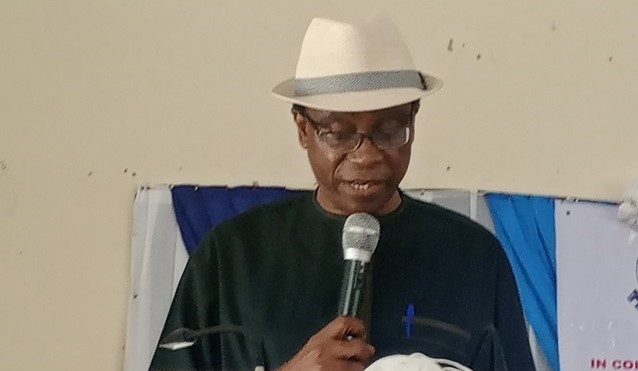Climate change is a result of human activities with reference to production, movement, and consumption of goods. A whole lot of these goods are products of transformation of natural resources, not to meet the basic needs of humans but to aid the drive for dispossession, accumulation, power, and despoliation.

Climate change is the outcome of fractured socioeconomic systems. If this is accepted, it should be expected that it is within human capacity to act in ways that would stem the tide, mitigate the impacts, and build resilience. Rather than do this, we are seeing a rise of arguments claiming that market forces can solve the climate polycrisis. It is clear that market environmentalism cannot solve problems created by the failure of markets.
The unholy wedlock between fossil fuel industries and governments has locked societies on the fossil pathway and made it seem like dependence on dirty energy is both inevitable and unavoidable. In Nigeria and other African countries, we hear top political leaders insisting that moving away from fossil fuels will spell economic doom, intensive energy deficits and a reign of poverty. It is not hard to see how false these arguments are.
The average Nigerian has been plunged into excruciating poverty and massive energy deficit despite 64 years of fossil fuel extraction and exports. Politicians cannot convince anyone that two more decades of destructive extraction and pollution would suddenly turn the horrible indices around.
The School of Ecology on Propelling the Energy Transition aims to achieve what the name says, force change from bad or dirty to good or renewable energy. With our partners in Latin America, Southeast Asia, and Africa, we are believing that there are lessons that can be learned from available wisdom and applied to fundamentally tip the scales away from polluting and harmful activities. We are actively learning from indigenous wisdom which largely encourage living within planetary limits and in harmony with Nature. Our youths can pick up the wisdom of the elders, process and adapt them in innovative ways to bring about the needed change.
The indications from multilateral actions prompted by the Paris Agreement of the UNFCCC are tilting more towards the perpetuation of polluting activities and then embarking on carbon removal from the atmosphere, or at pollution sources to buy time by delaying climate action while offloading the impacts on the youths and children.
This school denounces the intergenerational crimes connected to insistence on energy firms that harm humanity and the Planet. You have heard of ongoing moves towards divestment which the Niger Delta Convergence Manifesto characterises as criminal flight, a move to profit from avoiding responsibilities for current and historical ecocide.
Still in Africa, there is a push for exploitation of oil in the Okavango Basin in Namibia/Botswana, and insistence on drilling in Virunga (DRC) and in the Saloum Delta in Sénégal. We are already seeing the fires in Cabo Delgado in Mozambique and the resistance in South Africa. All these at a time when investment should be in clean energy modes.
To worsen the situation, the European Union is displaying an unwillingness to be weaned from fossil fuels as the gas taps from Russia gets constricted on account of the war with Ukraine. Suddenly all eyes are on Africa and our leaders are purring like spoilt cars as they jump at the coming reign of fossil colonialism.
With the intensification of climate impacts by way of foods, droughts, and wildfires around the world, it would be expected that global emergency measures would be taken to tackle the crisis. The NDCs, the heart of the Paris Agreement, is failing to cut emissions at levels necessary to tackle the unfolding global heating just as was foreseen by critical analysts. As politicians willfully avoid climate action it is clear that what will bring about a respite is a global and organised citizens action in the line of what is already emerging.
Together we scan the horizon, map dirty energy hotspots and challenged communities and promote the use of indigenous as well as empirical knowledge to influence policy and action. We believe in robust grassroots engagements through discussions, and consciously learning from the wise in intergenerational dialogues.
To propel the needed energy transition does not begin or end with opposing continued burning of fossil fuels. It, however, proposes alternatives that would bring access to clean energy to communities in sacrificial or marginalised zones. Building and sharing knowledge on the socio-economic and climate justice dimensions of the climate catastrophe is the strength of this push.
Organising and building community owned and controlled clean energy systems are the keyways forward. While taking these actions, citizens must consistently resist expansion of fossil fuel fields and also denounce the presentation of fossil gas a bridge fuel.
Nnimmo Bassey, Director, Health of Mother Earth Foundation (HOMEF), spoke at the organisation’s School of Ecology on Propelling the Energy Transition on Wednesday, July 13, 2022
